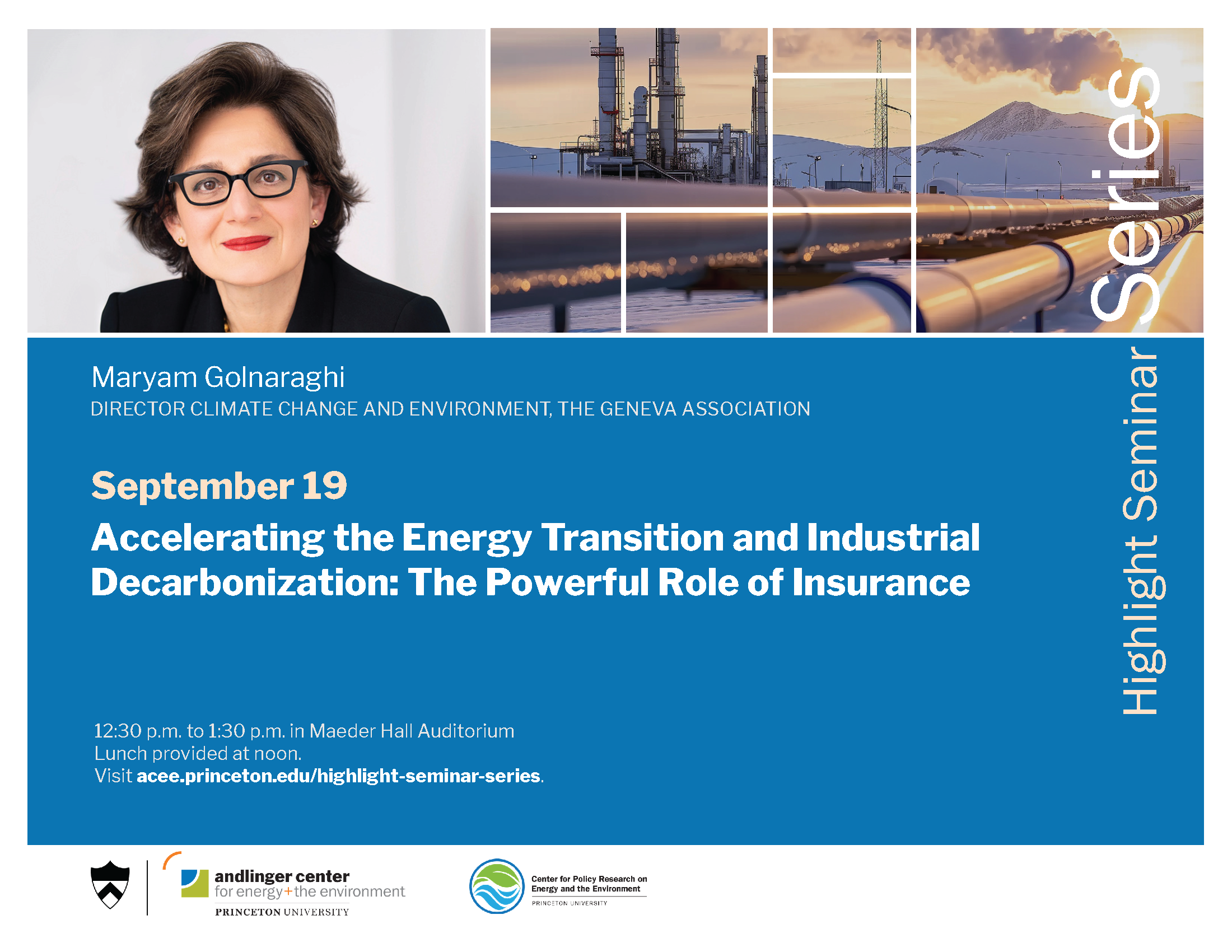
Climate change is changing the characteristic of weather extremes and slow changing climatic trends (physical climate risk). These combined with rising concentration of people and assets in high-risk areas, aging infrastructure and various macroeconomic factors, are leading to growing financial impacts on people, businesses, governments, investors and insurers. In the absence of appropriate risk mitigation measures, already in a few high-income economies with mature insurance markets, insurers are being forced to limit or cease offering new policies.
Physical climate risk is also hindering the climate transition. Rising insurance costs and difficulty finding coverage, particularly where the risk of weather-related events is above average, are starting to limit the deployment of renewable projects. As physical climate risks intensify and the window to cap global warming at 1.5°C above pre-industrial levels closes, the need to accelerate the scaled deployment of climate technologies for energy transition and industrial decarbonisation is becoming more acute. Though significant progress has been made in developing innovative climate technologies, such as green hydrogen, long duration energy storage (LDES), and carbon management, most remain in the pre-commercialization stages. Among the reasons for this are huge funding gaps, challenges with scaling, market readiness and scarcity of data on the new, untested risks they pose. Accelerating the at-scale commercial deployment of climate technologies will require unprecedented cross-sectoral collaboration from pre-commercialization stages to innovate risk management and financing. Re/insurers play a critical role.
Speaker Bio
Over the last 25 years, as a pioneer and a passionate thought leader Golnaraghi’s career has spanned working as a senior executive, founder & entrepreneur, and international advisor in the private and public sectors and the United Nations. Golnaraghi’s career has focused on designing, leading, and managing transformative initiatives, to innovate risk management and develop sustainable core business solutions to expedite and scale up transitioning to a climate-resilient and decarbonized economy. In 2020, Maryam was included on the list of 20 ‘Most Influential on Climate Change’ by InsuranceERM and among the top 100 influencers in the world on ‘Resilience’ by The Leaders’ Magazine.
Since 2015, Golnaraghi has been the Director of Climate Change and Environment at The Geneva Association, the strategic international think tank of the insurance industry, working with CEOs of 90 largest re/insurance companies, globally. She is leading strategic initiatives through cross-sectoral partnerships to boost the insurance industry’s contributions as risk managers and institutional investors.
From 2004 to 2014 Maryam served as the Chief of Disaster Risk Reduction at the United Nations’ World Meteorological Organization, where she headed up an international program and led climate and disaster risk management development projects in over 40 countries. She developed the initial concept of demand-driven climate information services, later expanded under the Global Framework for Climate Services and adopted by 192 member states at the Third UN World Climate Conference in 2009. This opened up access to publicly-funded climate data and modeling for decision-making support. Maryam also led the UN initiatives in the area of multi-hazard Early Warning Systems.
Following the 2004 Indian Ocean Tsunami, Golnaraghi served as an adviser to former U.S. President Clinton in his capacity as the UN Special Envoy on Tsunamis. She negotiated international agreements and coordinated activities that enabled the development and dissemination of tsunami alerts to all countries in less than five minutes. She led UN efforts for the development of early warning systems.
In 1997, she founded and served as the CEO of Climate Risk Solutions, Inc., a first-of-its-kind research and advisory firm, to deliver advanced climate risk analytics and innovative risk management solutions to the U.S. Government, public utilities, and companies in energy, agriculture, finance and insurance.
Golnaraghi mentors climate tech startups through the Creative Destruction Lab. She is a non-executive corporate board member and serves on several advisory committees in the public and private sectors and NGOs. She has authored numerous internationally referenced reports on climate change and a book on Multi-Hazard Early Warning Systems (Springer). Her work is regularly featured in the media and on various professional platforms.
Golnaraghi received a Ph.D. in Physical Oceanography, an M.Sc. in Applied Physics from Harvard University, and a B.Sc. in Chemical Engineering from Cornell University. She served as a senior research fellow at Harvard Business School.
Lunch will be provided at 12:00 noon preceding the seminar.
Sponsorship of an event does not constitute institutional endorsement of external speakers or views presented.


